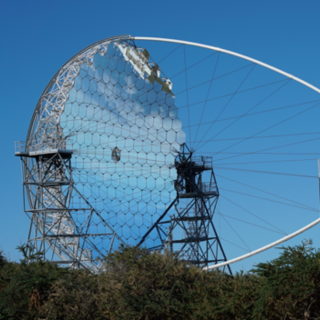Bibcode
IceCube Collaboration; Aartsen, M. G.; Ackermann, M.; Adams, J.; Aguilar, J. A.; Ahlers, M.; Ahrens, M.; Al Samarai, I.; Altmann, D.; Andeen, K.; Anderson, T.; Ansseau, I.; Anton, G.; Argüelles, C.; Auffenberg, J.; Axani, S.; Bagherpour, H.; Bai, X.; Barron, J. P.; Barwick, S. W.; Baum, V.; Bay, R.; Beatty, J. J.; Becker Tjus, J.; Becker, K.-H.; BenZvi, S.; Berley, D.; Bernardini, E.; Besson, D. Z.; Binder, G.; Bindig, D.; Blaufuss, E.; Blot, S.; Bohm, C.; Börner, M.; Bos, F.; Böser, S.; Botner, O.; Bourbeau, E.; Bourbeau, J.; Bradascio, F.; Braun, J.; Brenzke, M.; Bretz, H.-P.; Bron, S.; Brostean-Kaiser, J.; Burgman, A.; Busse, R. S.; Carver, T.; Cheung, E.; Chirkin, D.; Christov, A.; Clark, K.; Classen, L.; Coenders, S.; Collin, G. H.; Conrad, J. M.; Coppin, P.; Correa, P.; Cowen, D. F.; Cross, R.; Dave, P.; Day, M.; de André, J. P. A. M.; De Clercq, C.; DeLaunay, J. J.; Dembinski, H.; De Ridder, S.; Desiati, P.; de Vries, K. D.; de Wasseige, G.; de With, M.; DeYoung, T.; Díaz-Vélez, J. C.; di Lorenzo, V.; Dujmovic, H.; Dumm, J. P.; Dunkman, M.; Dvorak, E.; Eberhardt, B.; Ehrhardt, T.; Eichmann, B.; Eller, P.; Evenson, P. A.; Fahey, S.; Fazely, A. R.; Felde, J.; Filimonov, K.; Finley, C.; Flis, S.; Franckowiak, A.; Friedman, E.; Fritz, A.; Gaisser, T. K.; Gallagher, J.; Gerhardt, L.; Ghorbani, K.; Glauch, T.; Glüsenkamp, T.; Goldschmidt, A. et al.
Referencia bibliográfica
Science, Volume 361, Issue 6398, id. eaat1378 (2018).
Fecha de publicación:
7
2018
Revista
Número de citas
930
Número de citas referidas
713
Descripción
Previous detections of individual astrophysical sources of neutrinos are
limited to the Sun and the supernova 1987A, whereas the origins of the
diffuse flux of high-energy cosmic neutrinos remain unidentified. On 22
September 2017, we detected a high-energy neutrino, IceCube-170922A,
with an energy of ~290 tera-electron volts. Its arrival direction
was consistent with the location of a known γ-ray blazar, TXS
0506+056, observed to be in a flaring state. An extensive
multiwavelength campaign followed, ranging from radio frequencies to
γ-rays. These observations characterize the variability and
energetics of the blazar and include the detection of TXS 0506+056 in
very-high-energy γ-rays. This observation of a neutrino in spatial
coincidence with a γ-ray-emitting blazar during an active
phase suggests that blazars may be a source of high-energy neutrinos.
Proyectos relacionados

Astrofísica de Partículas
El Grupo de Astrofísica de Partículas del IAC participa activamente en tres grandes colaboraciones internacionales de astrofísica de muy altas energías: AMS-02 (Alpha Magnetic Spectrometer), los telescopios de radiación Cherenkov MAGIC I y II y el Cherenkov Telescope Array Observatory ( CTAO). Además, participamos en el ASTRI mini-array, el
Mónica Luisa
Vázquez Acosta